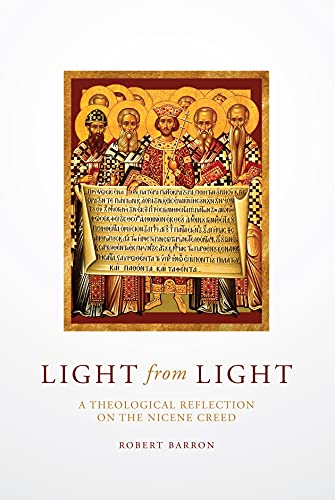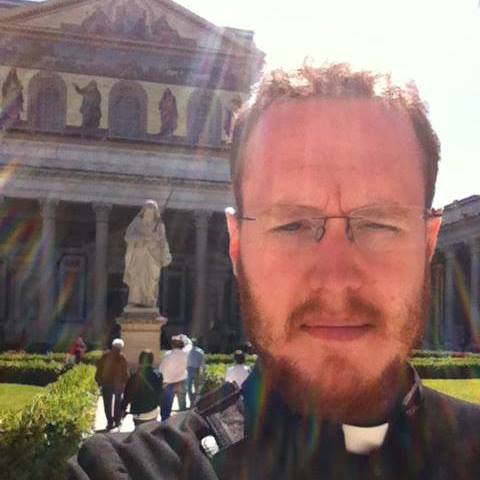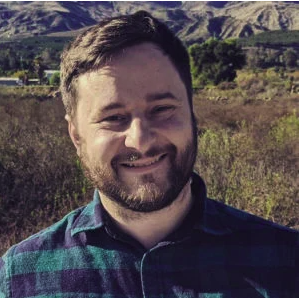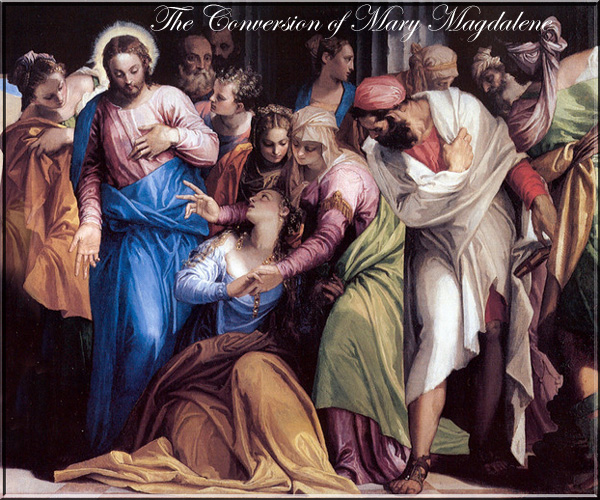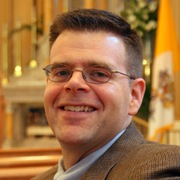

–Saint Lawrence Liberates Souls from Purgatory, Lorenzo di Niccolò, ca. 1412, Tempera and tooled gold on poplar panel, 13 5/16 x 26 5/8 in. (33.8 x 67.6 cm)Frame: 16 x 26 5/8 in. (40.6 x 67.6 cm), Brooklyn Museum, please click on the image for greater detail

-lighter tone

-by Karlo Broussard
“When it comes to the most misunderstood doctrines of the Catholic Church, purgatory probably ranks at the top. Often, these misunderstandings are manifested in what everyday folks say about purgatory.
Let’s consider some of these catchphrases here.
“If I don’t get a chance to turn my life around for the Lord here on earth, I’ll just do it when I’m in purgatory.”
This saying exposes perhaps the greatest myth about purgatory: that it’s a second chance for salvation. At least for the Catholic Church, purgatory is only for those who, in the words of the Catechism (CCC), “die in God’s grace and friendship” (1030). The Catechism goes on to affirm that such people are “assured of their eternal salvation.”
The Bible supports this view of purgatory. Consider, for example, Hebrews 9:27: “It is appointed for men to die once, and after that comes judgment.” Jesus’s parable of the rich man and Lazarus in Luke 16 confirms the idea that the judgment immediately following death (the particular judgment—CCC 1022) secures one’s eternal destiny.
We’re told that Lazarus died and then “was carried by the angels to Abraham’s bosom” (v.22). After the rich man’s death, he found himself “in Hades, being in torment” (v.23). That their destinies were secure is indicated what Abraham tells the rich man, “Between us and you a great chasm has been fixed, in order that those who would pass from here to you may not be able, and none may cross from there to us’” (v.26).
Since the Bible reveals that a soul’s ultimate destiny is secure immediately after death, whether heaven or hell, it follows that the ultimate destiny of every soul in purgatory is secure. And since the Catholic Church teaches that the destiny of every soul in purgatory is heaven (they died in God’s grace and friendship), it follows that every soul in purgatory is secure with respect to his salvation. Purgatory, therefore, is not a place for second chances.
“There’s no point praying for souls in purgatory because they’re all going to heaven anyway.”
Although it’s true that the souls in purgatory will eventually enter heaven, that doesn’t mean there’s no point in praying for them. There are several reasons why we should pray for the faithful departed.
First, it expresses love for them. St. Thomas Aquinas teaches that love is “to wish good to someone” (Summa Theologiae I-II:26:4). The possession of God in the beatific vision, which is temporally delayed for the holy souls, is the greatest good for the souls in purgatory (it’s the greatest good for us all). As such, anything we do to help them achieve that good, like praying for them, is an expression of our love.
This expression of love for the holy souls in turn brings us consolation, which makes for a second reason to pray for them.
Aquinas teaches that love is not only “to wish good to someone,” but also to wish it “just as he wills good to himself” (ST I-II:28:1). It follows from this definition of love that the good the souls in purgatory experience by having their impediments to heaven removed is experienced as our own good. That means that their consolation is our consolation; their source of joy is our source of joy. As the late Frank Sheed writes, “there is a special joy for the Catholic in praying for his dead, if only the feeling that there is still something he can do for people he loved upon earth.”
A third reason to pray for the holy souls is that our prayer for them makes their prayer for us more effective. The Catechism teaches, “Our prayer for them [souls in purgatory] is capable not only of helping them, but also of making their intercession for us effective” (958).
The rationale here is that the holier a person is (the less sin or remnants of sin a person has), the more effective his prayers are. St. James writes, “The prayer of a righteous man has great power in its effects” (James 5:16). Since the souls in purgatory are made holier (more righteous) as we pray for them, it follows that as we pray for them, their prayers for us become more effective.
“We’re not good enough for heaven, so we should content ourselves to hope for purgatory.”
This statement assumes that no one can bypass purgatory. But that’s not true, according to Catholic teaching. In paragraph 1472, the Catechism teaches, “A conversion which proceeds from a fervent charity can attain the complete purification of the sinner in such a way that no punishment would remain.”
The rationale behind this is that when a soul turns to God in conversion, the detestation of sin and love of God can create a sorrow for sin so intense that it suffices as the pain due the soul for the pleasure taken in the sin, thus discharging any remaining debt of temporal punishment. Also, love for God could be so intense that it suffices to purify the soul of any unhealthy attachments to created goods and remit any guilt of venial sin.
Being content to hope for purgatory is not a proper Catholic perspective. Purgatory is not our final destination; heaven is. As such, Christians should strive to attain that degree of holiness such that upon death, we can immediately enter heaven. Like St. Paul, we should desire to be “away from the body and at home with the Lord” (2 Cor. 5:8).
True Christian hope doesn’t entail a desire to be delayed in attaining our ultimate goal. It entails the desire to attain it without delay. So every Christian should desire to bypass purgatory. It’s that desire that inspires us to order our lives more and more toward union with God in heaven. This is the way of holiness. Sirach 7:36 says, “In all you do, remember the end of your life, and then you will never sin.”
“Purgatory’s not that bad.”
It’s true that it might not be that bad for all. It’s also true that purgatory consists of great joys—joys that far exceed what we can experience in this life. The Italian mystic St. Catherine of Genoa writes, “I believe no happiness can be found worthy to be compared with that of a soul in purgatory except that of the saints in paradise.”
However, the purgatorial visions of a fourteenth-century saint, St. Bridget of Sweden (as well as others), suggest that purgatory can be an intense experience of suffering, at least for some. These visions are recorded in Book 6 of her revelations.
Bridget records how she was transported to purgatory. There she saw a highborn woman who had lived a life of luxury and vanities of the world.
“Happily,” she told Bridget, “before death I confessed my sins in such dispositions as to escape hell, but now I suffer here to expiate the worldly life that my mother did not prevent me from leading.”
The soul continued with a sigh, “Alas! This head, which loved to be adorned, and which sought to draw the attention of others, is now devoured with flames within and without, and these flames are so violent that every moment it seems to me that I must die.”
The soul went on:
These shoulders, these arms, which I loved to see admired, are cruelly bound in chains of red-hot iron. These feet, formerly trained for the dance, are now surrounded with vipers that tear them with their fangs and soil them with their filthy slime; all these members which I have adorned with jewels, flowers, and divers other ornaments, are now a prey to the most horrible torture.
All the same, the soul rejoiced in God’s mercy for not damning her.
Such torments for worldly vanities ought to give us reason to re-think our attachments to worldly goods, especially physical beauty.
It also gives us reason to take purgatory seriously—not as a place to give seeking salvation another go, or the only place we can expect to get to, or a place where our departed loved ones don’t need us anymore . . . but a realm of purification, given to us by a merciful God who exhausts every avenue to see us happy with him in heaven.”
Love, pray for the holy souls in Purgatory,
Matthew


